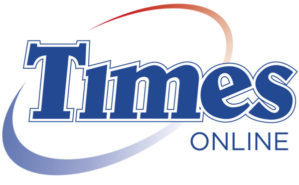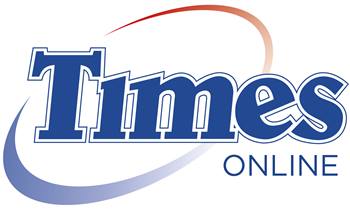
Torrential rain forced Korean War Veterans to abandon their final march outside the Auckland War Memorial Museum last week.
The national body representing them – the NZ Korean War Veterans Association – has been wound up as its ageing vets lose the battle against old age. Regional branches will continue to operate.
Howick’s Barry Dreyer, Colonel Commandant of the Royal Regiment of New Zealand Artillery, attended the closing ceremony on behalf of the New Zealand Army, and laid a wreath alongside his naval and air force counterparts.
“We’d intended there to be a marching parade with 82 Korean war veterans marching but it was just too wet so the ceremony had to be inside,” Colonel Dreyer said.
As many as 180 veterans were amongst more than 300 guests marking the association’s closure and a luncheon at Alexandra Park on Wednesday.
Below is a speech from Colonel Commandant Barry Dreyer:
FAREWELL PARADE KVA
Mr luncheon President, General Kelly, distinguished military guests, Madame Cha and Melissa Lee, and most importantly veterans and their families and supporters, it is a great honour that I have been asked to propose a toast to you, the K Force veterans, on the day of your last parade in Auckland.
I have known some of you since my early days in the Army more than 50 years ago, some of you since I was lucky enough to accompany you to Korea for the commemorations around the 60th Anniversary of the Battle of Kap’yong, and others of you in my current role as Colonel Commandant of the Royal Regiment of New Zealand Artillery.
I should add that I am in fact standing in for your patron, Jim Newman, who was unable to be here today.
In June 1950 North Korea invaded the South. At the end of that month, on 29 June, New Zealand offered its first set of forces for the newly formed United Nations Command which was established to defend South Korea. New Zealand was one of the first countries to offer support.
The frigates Tutira and Pukaki left Auckland on the 3 July, and began their war work in the Sea of Japan on 2 August, at the stage where the North had captured almost the whole of the South, except for the defensive perimeter around Busan.
Other ground forces followed, notably 16 Field Regiment, 10 Transport Platoon – later 10 Transport company, as well as a whole range of various Corps, staff and Air and Navy personnel on attachments to Commonwealth and United States forces.
In all, every one of our eight frigates was deployed on operations, and about 4700 men served on the ground with K force. About 1300 served in the frigates. This was over a seven-year period.
Korea has been regarded publicly as the “forgotten war”.
That is wrong. In fact it had an immediate effect on our international relations as the important ANZUS Treaty was signed on 1 September, 1951, at the peak of the major counteroffensive North of Seoul.
Additionally, it was really the first and probably most important holding action fought by the Western Allies in Asia after WW2. These actions were fought in Malaya, Borneo, Thailand, and Vietnam, as well as in Korea.
These holding actions against what were essentially communist supported insurrections or invasions, allowed the democratic development and economic growth of a range of Asian countries that had been devastated by war – South Korea, Japan, Thailand, the Philippines, Indonesia, all of the Malaysian states, Singapore, and we can now perhaps add Vietnam.
In this light, the Korean veterans were the first and probably most important in the process of bringing millions of people out of poverty and subjugation.
This is why you are held in such high regard by the people of South Korea.
Your war was not easy. The enemy were tenacious, usually in overwhelming strength, and as the war went on, increasingly sophisticated.
I have been over some of the ground in which the battles were fought, and been down the coastline that our Navy helped protect. It is a difficult landscape in which to fight any sort of battle, and in winter the weather was atrocious both on land and at sea.
As well as the enemy you fought front on, there was always the risk of attacks from the rear and by local guerrillas. It was not an easy war and certainly from a gunner aspect we have always greatly admired your ability to form a Regiment, and be in action a third of the way round the world in less than six months.
All of the New Zealand efforts in Korea earned outstanding reputations, be it individuals on secondment, through ships and raiding parties at sea, to the fighting arms and logistics support on land. You did your job well for your service and your country. I know the Korean nation is forever grateful.
War forms close bonds, far closer and more difficult to understand that any that are formed outside war. These bonds go on for a lifetime, and carry individuals and families with them. This is perhaps the greatest personal satisfaction we can have from the horrors and difficulty of active service – the support, love and camaraderie of those we fought with.
As a group, you are coming to the end of your team activities from your Korean service. However, I am sure the camaraderie, support and lifetime friendships will remain.
Once again, I am very honoured to have had this opportunity to speak to a group of servicemen whom I have always admired.
On behalf of all present, I thank you for your service and sacrifices. We wish you well for the rest of your time; you earned this right many years ago.
So, a toast. Ladies and gentlemen, the Korean Veterans – to all of them, those here today, those not able to join us, and those that have already gone. Great soldiers and sailors, great representatives of your unit and your nation, and major contributors to the peace and prosperity of our country’s allies. We wish you well and salute you.
Barry Dreyer
Colonel Commandant
Royal Regiment of New Zealand Artillery







